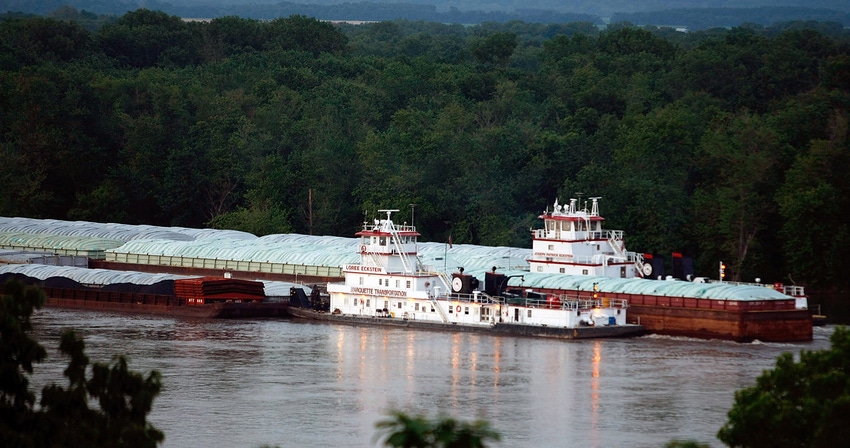March 31, 2022

If a Canadian Pacific Railway strike becomes a reality on Sunday, U.S. farmers north of Arkansas who normally rely on rail freight to deliver fertilizer may end up seeking inputs via river routes from the south — increasing demand on an already pricey necessity.
The railway said Wednesday that a “lockout order” would go into effect for about 3,000 employees by March 20 if the company cannot reach an agreement with the Teamsters Canada Rail Conference union before then.
The union announced its intent to strike during the first week of March. As the March 16 deadline approached, agronomists and agricultural economists noted that a stoppage of Canadian rail traffic could impact many North American growers, most of whom rely to some degree on the fertilizer potash.
Canada is the world’s No. 1 potash producer, supplying about a third of global supply, and about 86% of the potash purchased in the United States.
Scott Stiles, extension economist for the University of Arkansas System Division of Agriculture, said that while a kink in the Canadian potash supply line may not cripple the 2022 planting season, it only complicates an already troublesome outlook.
“This is certainly not good news,” Stiles said. He noted that 10% of Canadian Pacific’s business is transporting fertilizer. “They also move some U.S. grain to the export terminals in the Pacific Northwest.”
Western markets are already making do without potash imports from the world’s No. 2 and No. 3 potash producers — Russia and its neighbor and ally Belarus — due to Russia’s invasion of Ukraine. Over the past five weeks, potash prices have increased by 12, resuming an upward trend that has been in place for much of the past year.
“Russian and Belarus potash supplies are essentially unavailable to the world export market,” Stiles said.
2022 outlook
Luckily for Arkansas growers, potash supplies for the 2022 growing season will likely not be affected, although prices will likely rise as growers in northern states begin to look southward.
Trent Roberts, assistant professor of crop, soil and environmental science for the Division of Agriculture, said most fertilizer retailers in the state have 50% to 100% of their seasonal potash supplies already on hand.
“Almost all potash in Arkansas is going to be supplied via the river and not rail, so this will not impact their supply,” Roberts said.
“The only way they see this impacting Arkansas is price,” he said, regarding fertilizer retailers he had spoken with this week. “As the rail strike continues, and as more people up north begin to shift to the river for their potash needs, that will impact the cost for the potash supplied via the river. The price would increase substantially.”
You May Also Like




